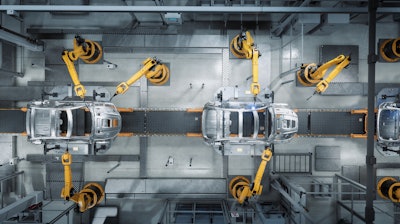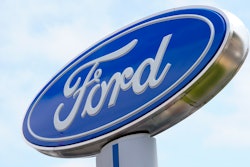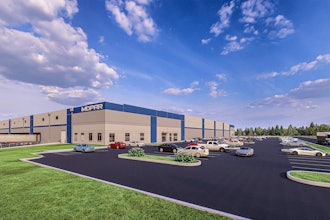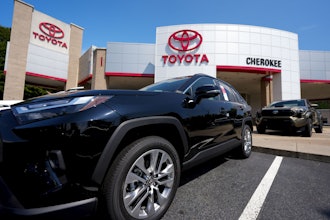
As scientists continue to warn the world about climate change, consumers and governments turn to the automotive industry for help. As a significant contributor to climate change and an exciting innovator in a sustainable market, the automotive industry is ready for the challenge.
Sustainability manufacturing is booming in the automotive industry and inspiring trends for limiting emissions and the climate change impacts of vehicles. Demand from governments and consumers is pushing the automotive industry into a much-needed transition.
What is Sustainable Manufacturing?
Sustainability is a hot topic for consumers, business owners and manufacturers in the automotive industry. Although many assume sustainable manufacturing might only relate to manufacturing electric vehicles (EVs), there are many more ways that sustainability is incorporated into the industry beyond that.
According to the Environmental Protection Agency (EPA), the umbrella term “sustainable manufacturing” means “the creation of manufactured products through economically sound processes that minimize negative environmental impacts while conserving energy and natural resources.”
The definition is vague, as it applies to many different industries. However, in the automotive industry, manufacturing sustainability means recycling, reusing, fewer consumables, less emissions and lighter materials.
5 Sustainability Trends in the Automotive Industry
The automotive industry has been quick to adapt to ever-changing regulations, technology and innovation. Here are the five common trends shaping the industry:
Circular Economy
An overarching trend in the automotive industry is the push to move from a linear economy to a circular economy.
Linear economies are manufacturing lifecycles that start with raw materials and end with waste. On the other hand, a circular economy starts with raw materials but then uses the end “waste” as material in the next manufactured product. In short, a circular economy focuses on reusing and recycling.
In the case of vehicles, a linear economy results in the car being destroyed at the end of its lifecycle, and a circular economy uses that vehicle for a new vehicle’s components. The circular economy decreases the extraction of limited natural resources, which saves these resources and causes less environmental damage from extraction.
Smart Manufacturing and AI
Artificial intelligence (AI), machine learning, the Internet of Things (IoT) and other digitization methods are transforming automotive manufacturing. This “smart manufacturing” is helping to optimize energy usage, reduce defects and enhance product efficiency.
In addition, it helps with predictive maintenance, minimizing downtime, supply chain efficiency and reducing waste. For example, AI can monitor data from environmental sensors to ensure compliance with regulatory requirements.
Fewer Consumables
The automotive industry frequents consumables – whether that be through printing, labeling, sandblasting or chemical cleaning. These methods are crucial processes for manufacturing but add a steep environmental impact from toxic waste, contaminants and lack of recyclability.
With the push for sustainability, manufacturers are finding alternative methods that produce the same or better results. Incorporating laser technology is a method that’s proven to use zero consumables for manufacturers and works especially well for delicate products.
Boeing reported that removing paint with laser technology decreased hazardous waste by over 90%. EV laser marking on batteries is also a popular method for traceability that doesn’t harm the battery with consumables. This technology ranges in abilities from welding, marking and cleaning all in one. Laser technology eliminates consumables like ink, labels, chemicals and blasting media.
Lighter Materials
Reducing weight is a significant trend in the automotive industry. Regardless of the type of engine or design, vehicles can improve sustainability with lighter materials. Manufacturers are using more carbon fiber, aluminum and composite materials to reduce vehicle weights and help with sustainability efforts.
Why are lighter materials trending in automotive manufacturing? The reduced weight uses less materials and resources, less transportation energy and improves efficiency and extended battery performance.
Electric Vehicles
Even though sustainability practices range across all vehicles, there’s no denying that EVs are taking over the industry by storm. 2035 is the target year for many predictors and pledges – EY predicts over 83.3 million EVs taking over the U.S. and Canada’s roads by 2035. California and the EU introduced rules that 100% of vehicles sold in those areas will be zero emission in 2035. Because they produce zero tailpipe emissions, major automakers will continue to invest heavily in EV technology.
Benefits of a Sustainable Manufacturing Approach
Implementing resource-efficient productions in the automotive industry offers several significant benefits for manufacturers. Here are a few that cannot be ignored:
- It helps reduce environmental impact and creates a cleaner environment.
- Sustainable practices often result in long-term cost savings.
- It improves a company’s brand reputation and image.
- Helps companies comply with regulations.
- Innovation in sustainability can lead to a competitive advantage.
- Contributes to global efforts to address climate change, reduce pollution and more.
As sustainable manufacturing continues to gain importance, these and other benefits will continue to help increase adoption.
The Future of Sustainable Manufacturing
Global pledges and agreements about the future of carbon emissions foreshadow a new norm for the automotive industry. As such, sustainable manufacturing will continue to play an important role in driving key objectives while complying with changing regulations. As climate change and global warming continue to dominate headlines, efforts will remain in place that focus on manufacturing processes.
The push for sustainability in automotive manufacturing is an empowering moment for the industry, especially with consumer and government support. With significant dollars from government incentives, consumer buy-in and the opportunity to play a role in climate change, sustainable manufacturing has some exciting opportunities ahead.
---
 Dave ReichlinKEYENCE America
Dave ReichlinKEYENCE America
Dave Reichlin is KEYENCE America's National Product Director for laser marking and processing. He has been consulting, innovating and driving advances in the laser marking world for over 12 years and is a foremost expert on the technology and its applications in the manufacturing space.























